Fresh from her BBC Radio 1 live Maida Vale session, Welsh rapper Deyah passes through The Basement's studio to discuss her latest EP, Exit The Dance.
When Deyah released her last album, Care City, in 2020, life in the UK was proving tough for many. 3 months deep into a pandemic most had expected to last a couple of weeks, with lockdown raging and no clear end in sight, the 25-year-old Welsh rapper’s hauntingly personal tales of addiction and depression cut to the bone. The unflinching honesty with which Deyah rapped about these subjects provided comfort to many going through similar experiences, her decision to open up to her listeners marking the album as one of the year’s most poignant.
This is not to say that the honesty Deyah has become known for is missing in her latest work. On the contrary, she uses the new EP to illuminate a host of truisms — about herself, the industry, the world — that are similarly surgical in their commentary. The juxtaposition she paints between her everyday reality and the perception of what being a musician or ‘public figure’ means is masterful, bars like “we got the call about Fire in the Booth same day the yungens set fire to my coop, same day my landlord told me I should move, same day my bank account went into blue” from her Fire in the Booth starkly pointing out the gap between expectation and reality that is affecting many of the Instagram generation.
The difference, however, is a fresh dynamic – an overriding joy that marks a new era for Deyah. Hard-hitting truths like those discussed above are blended seamlessly with more light-hearted expressions of personal happiness, speaking to the journey she has gone on over the last two years. The result is a levity which seamlessly counterbalances the more serious moments dotted throughout. In short, Exit The Dance is exactly the EP we needed as we embark into the unknown of 2022.


Deyah: Can I say the word shit?
FLB: You can say anything you want!
Deyah: (Laughing) ok sounds good.
FLB: Ok, so. Where did it all begin with you and music? Were your family musical?
Deyah: My father always played music, regardless of what time of day it was. It was always jazz and garage, but also hip-hop, so I had that regardless of whether I wanted it or not. He didn’t have a musical background, but he’s a genius when it comes to vibes and instruments and shit. So from young I was like, ‘Oh, wow, music is way more than I thought it was when I went to school’. My mum is really sick at writing, and she’s very, very deep. So my dad kind of taught me the instrumentation, and my mum inspired the writing.
FLB: You grew up around Cardiff, right?
Deyah: Yeah, on the outskirts.
FLB: What was your perception of Wales’ hip hop and rap scene at the time?
Deyah: Growing up in Cardiff, the most popular music is techno, drum and bass, pop and classical. Now I’m not going to lie, I love drum and bass. But hip-hop wasn’t really going. Grime was kind of a thing, but it was a sort of imitation of what London were doing, so there wasn’t really a space for what I was trying to do and it was a struggle. I think even in terms of physical facilities, there wasn’t really a place that could facilitate hip-hop…
FLB: So your 2020 album Care City was informed by some pretty dark periods in your life, but it feels like, with the new EP Exit The Dance, you’re trying to shed off the skin of the last project and move away from that time a little. The line “last year broke me, this year fixed up the kid” really paints a picture of the journey you’ve been on, and when you say “rehab done now Babylon come”, it sounds like a statement of intent. Even in ‘Genesis’, when you say “my former existence no longer serves me” – there’s a palpable sense of inner peace and relief in Exit The Dance compared to Care City.
Deyah: Yeah, for sure. When recording Exit The Dance, I literally had just come out of this whirlwind of constant shit, like a domino effect. So I think it was the moment where I could just speak about all the stuff I’d experienced. It was therapeutic as well, and I always think it’s important when I do music that it’s therapeutic for me. I know I’m doing it for other people but, if I’m honest, it’s more for myself at times, and I think Exit The Dance was for myself.
FLB: It’s interesting you say that, like, do you have a general outlook on who it is that you’re making music for? Or does who it’s for change from project to project?
Deyah: I used to care who it was for, until I realised that everyone will take what they want from wherever they want, they’ll decide how they digest stuff. So I just make sure that I’m as authentic as possible. Of course, those who have experienced the topics I’ve spoken about hopefully can digest it in the way they need to, but I’ve stopped trying to make music for people. People change: one day, they like you, one day they don’t; one day they want you to do this, one day they want you to do that. I ain’t got time for that.

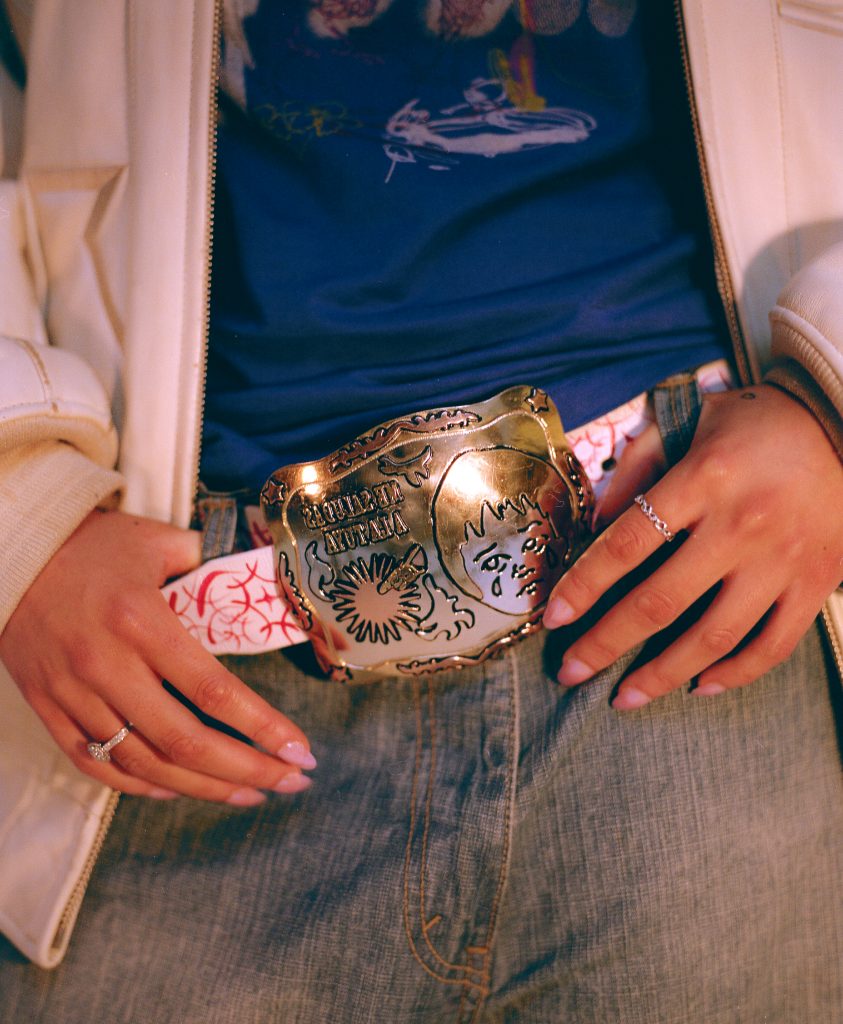
FLB: Listening to your music, it feels like you have quite a non-materialistic, anti-capitalist outlook on rap and the wider scene that surrounds you. Rather than writing about your new yard or whatever, you’re actively trying to point out the meaninglessness of those kind of subject matters. There was one bar I loved where you say, “I don’t get furlough, I don’t get benefits, you’re drinking Merlot just for the hell of it,” and I think it’s brilliant the way you move away from fronting and flexing and are just honest about what life is. What inspired you to go down that route? And what do you think about rap’s tendency towards flexing?
Deyah: I detest flexing, I just don’t get it. I’m half Nigerian and my dad took me to the village from very young, so I saw my own family deal with poverty, for example. And then it was really weird, going back to a private school and seeing people driving what they were driving, or how when they broke their phone at lunchtime they’d have another one waiting for them at reception by the end of the school day. People have different things that are important to them, but we’re all humans and at a point you’re going to go through something, whether it’s loss or trauma or whatever. And when you’re really in that trauma, are you thinking about the car you’re driving? Are you thinking about the watch you’re wearing?
FLB: It all fades away…
Deyah: Completely. And so realising that makes me want to be as honest as possible. I think it’s important for young people to realise that all of that flexing means absolutely nothing. And I feel like the people who flex the most have the darkest demons at times, because there’s a reason why you feel the need to be flexing all the time.
FLB: Obviously religion was a big theme for Care City, and you’ve spoken in past interviews about how events at your church were a catalyst for some of those bad times that you speak about in the in the album. There’s a lot of religious imagery littered throughout Exit The Dance, but it feels different this time, like you’ve somewhat reconciled your relationship with religion. Even on your Fire In The Booth, you say that God is the only shoutout you’ve got. Has your relationship with God and with religion changed over the last few years?
Deyah: I’ve had a tumultuous relationship with religion, because I wasn’t religious when I was young but then went through a lot of experiences where I believed that okay, there was a higher power, and then that higher power I identified as God. I’d always heard quite a few negative stories about church, but then I had this calling while I was in Vietnam in like 2014 to go and study theology, Hebrew and Greek language. Because I’d found God on my own, it was a major inspiration for me. It was when I got to the actual institution, being in almost like a nunnery, that I started to see the darker side of religion, the political side. I know we’re all humans, and so we all have flaws and faults, but you do expect more from an establishment that is claiming to be what they claim to be. The church I was at specifically, my denomination, you’re not allowed to wear trousers if you’re female, you can’t wear jewellery, you have to cover your tattoos.
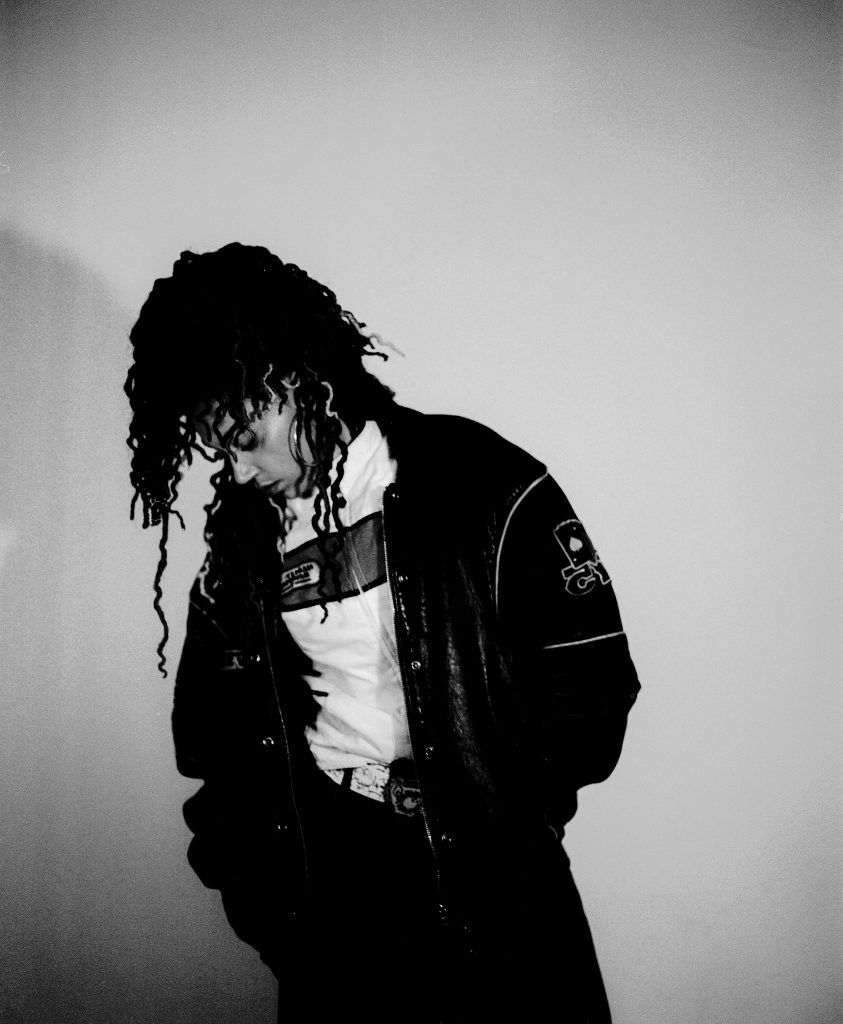
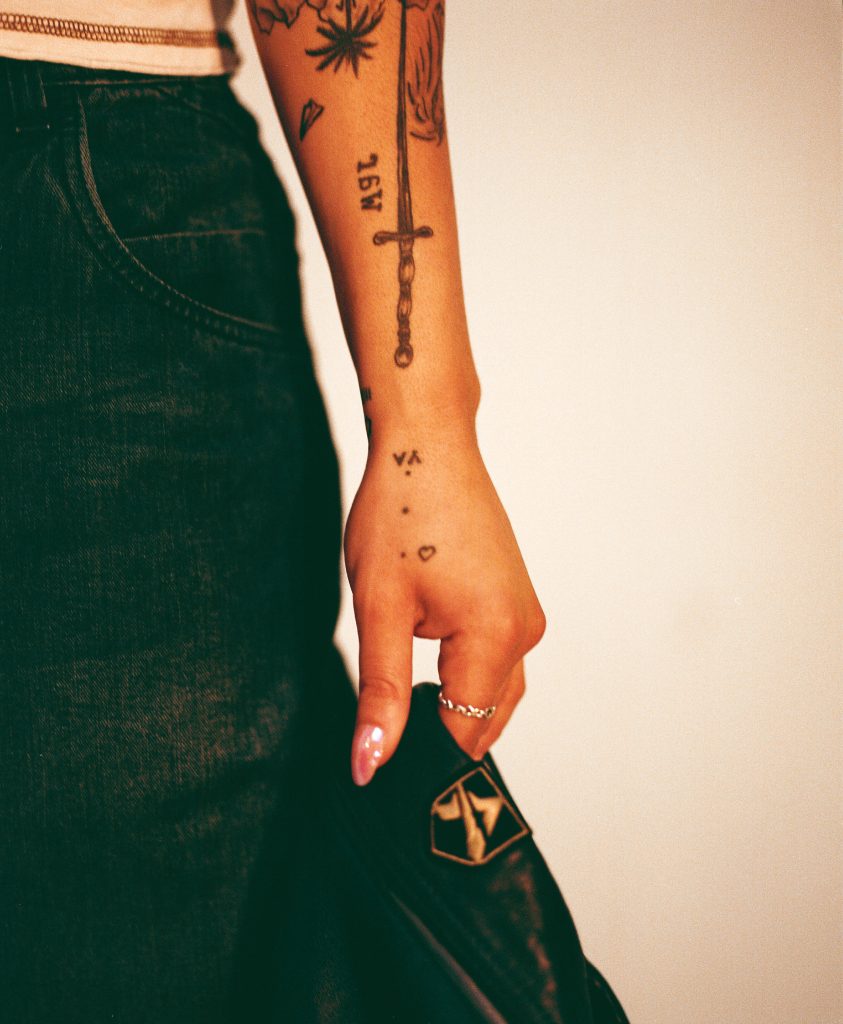
FLB: Quite a traditional church?
Deyah: Super traditional. And there’s a lot of tradition I do admire, but things like that, where you’re actually turning someone away from entering the building? I wasn’t having it, and I was very vocal about that. They didn’t like that. I was very vocal about a lot of things they didn’t like. And yeah, unfortunately, I’ve had this awful experience with the head of the church there, and it just broke my whole world. I lost my shit pretty much. It’s taken me time — that was back in 2019 — but with lockdown and not actually having a church to go to, finding my own feet, I’m back where I feel like I need to be. I’ll always include God in some shape or form in my lyrics because it’s a part of me, but it will come in different ways. I’ve had tracks in the past where I’m shouting at God, like ‘what on earth is going on? How can you allow people to be like this? Who are representatives of you?’ I’ve also had tracks where I’m crying out to him, to ask him to forgive me for behaviour and my mindset, or when I’m praising.
FLB: Quite similar to an actual relationship.
Deyah: Yeah, it is. It really is.
FLB: You can tell listening to Exit The Dance that that relationship has been reconciled, and I love how you bring the openness and freedom that you were denied by your church to the way you use religion in your music. Throughout the project, you choose to mix these quite introspective religious self-discoveries with contrastingly relatable, everyday bars like “I’ve been doing squats…booty” or “EE said my data’s run out, satan stop it.” To me, that’s almost a subversion of how religious imagery is usually presented.
Deyah: Exactly. And I think sometimes when you hear some religious jargon, they’re trying to inspire and draw people in but the language they’re using is super archaic. There’s words that the youth say that I’m like what type of language is that, I don’t get what they’re saying, let alone them trying to hear something from a pastor who’s speaking super ‘thee’, ‘thou’ and whatever. So I like to make sure my music’s understandable, and I’m trying to kind of bridge the gap between my beliefs and day to day stuff.
FLB: You seem to be an artist who is very aware of their position in history, their context and their roots, and I loved the bar where you say: “I went to the motherland / pops said it’s imperative my narrative can understand”. Throughout the project, you flit between English, French, Yoruba and Ebo from bar to the next, which is amazing to listen to, and I was wondering to what degree you felt your roots and heritage inform you in your art and in your life?
Deyah: My father made sure from young that I understood where I’m from. That was with food, the language, the culture – everything. The school I was in was like 99.9% Caucasian, and my afro was always massive. I remember my teacher said when we were doing the school photo that my hair was like a gorse bush. She was like, ‘we need to do something with your hair,’ and she took me into a store cupboard and was like brushing my hair really hard into this weird ponytail bun thing. When we got the photos, my mum was like, ‘what the hell happened?’ My dad went mental, he was going through the roof. But I realise now that, from that moment, I then changed the way that I would dress, the way I would speak, the music that I would listen to at school. I just didn’t feel comfortable being myself. And then when I left school, I was like, ‘nah, this is bullshit. I’m half African, man!’

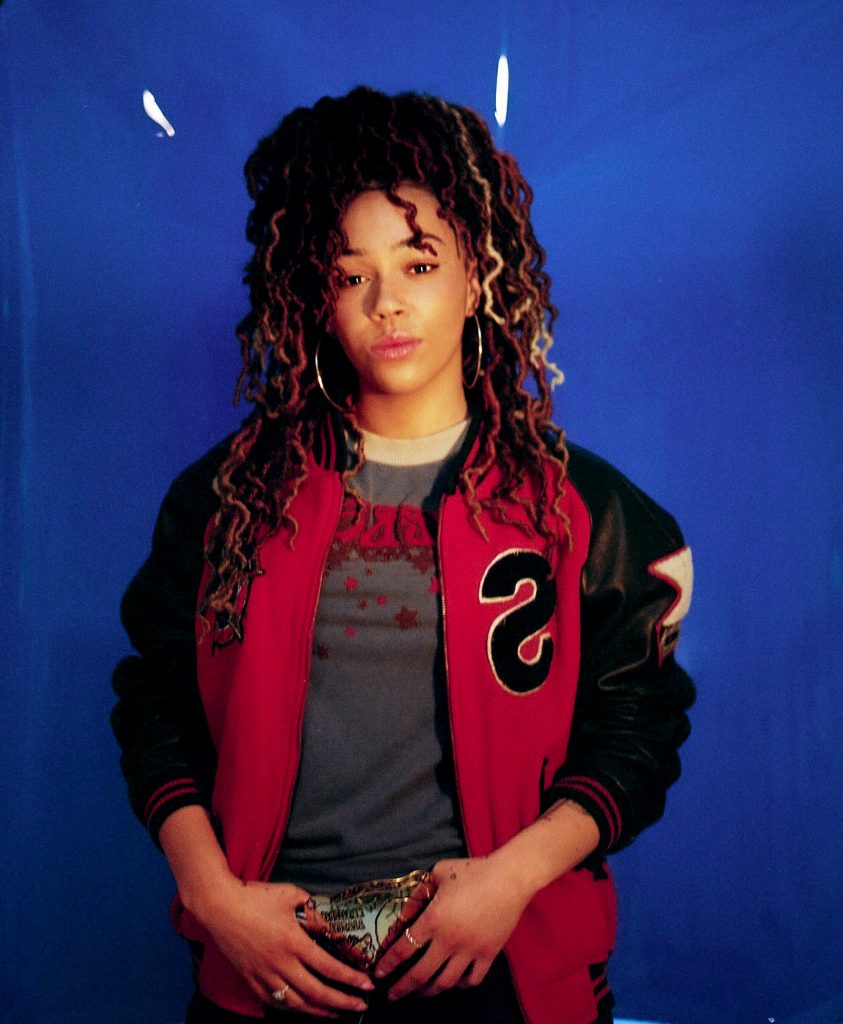
FLB: Fucking hell. That denial of your identity must have been so difficult, especially as a kid.
Deyah: Yeah, though unfortunately it’s not surprising. At all. But when you’re that age, you then think something’s wrong with you. Everyone else looks different to you. And then you see someone older than you trying to change you into something that they’re more comfortable with. So then you start to think ‘well, what’s wrong with how I am?’
FLB: It’s just making you fit into someone else’s idealisation, it’s gross.
Deyah: Exactly, exactly. So yeah, culture is a massive thing to me now. And when I have children, I want to be able to have enough knowledge about my culture, I wouldn’t want it to be filtered out. It’ll be passed down, but it will be strong with within.
FLB: The way you switch up your flow throughout the EP — and even within a single song — is dope, but one of my favourite elements of your music is the way you use your actual voice to put across your personality in each song. It’s not just flowing, it’s cadence and texture which drags whoever’s listening in and gives us such a perfect sense of how you’re feeling at the time. Do you give much importance to the way your rap actually sounds as opposed to the lyrics and flow?
Deyah: Yeah for sure. One of the main criticisms I got from when I was rapping at 16 is that I was extremely monotone. I wouldn’t hear it myself so I just thought they were being haters, but as I grew older and I listened to it, I was like, ‘Oh my days, there is no variation in your words whatsoever!” And it’s crazy because I grew up watching, you know, The Mask with Jim Carrey, I love a bit of Mr. Bean, Fawlty Towers – I watched programs that had people use their voice so much. So I thought, let me show this personality that I do have in my music. And I just picked up on people like Jim Carrey, and even artists like A Tribe Called Quest of Slum Village. It gives a whole new dimension to the music. It kind of makes it 3D almost.
FLB: We’ve spoken a bit like before today about the music industry. There’s a bar in your Fire In The Booth where you say: “This ain’t my scene, but I walk on it. The web is a lie, I ain’t caught on it.” Do you feel a degree of disillusionment with the industry you operate in?
Deyah: I hate the industry with a passion. Never been afraid to say it – I don’t like it one bit. And if I’m honest, every single day, I argue with myself because I’m such a homebody. I don’t like these extravagant meetings, I don’t like sitting down with people and discussing me as a product, even though I’ve chosen to be, you know, an artist.
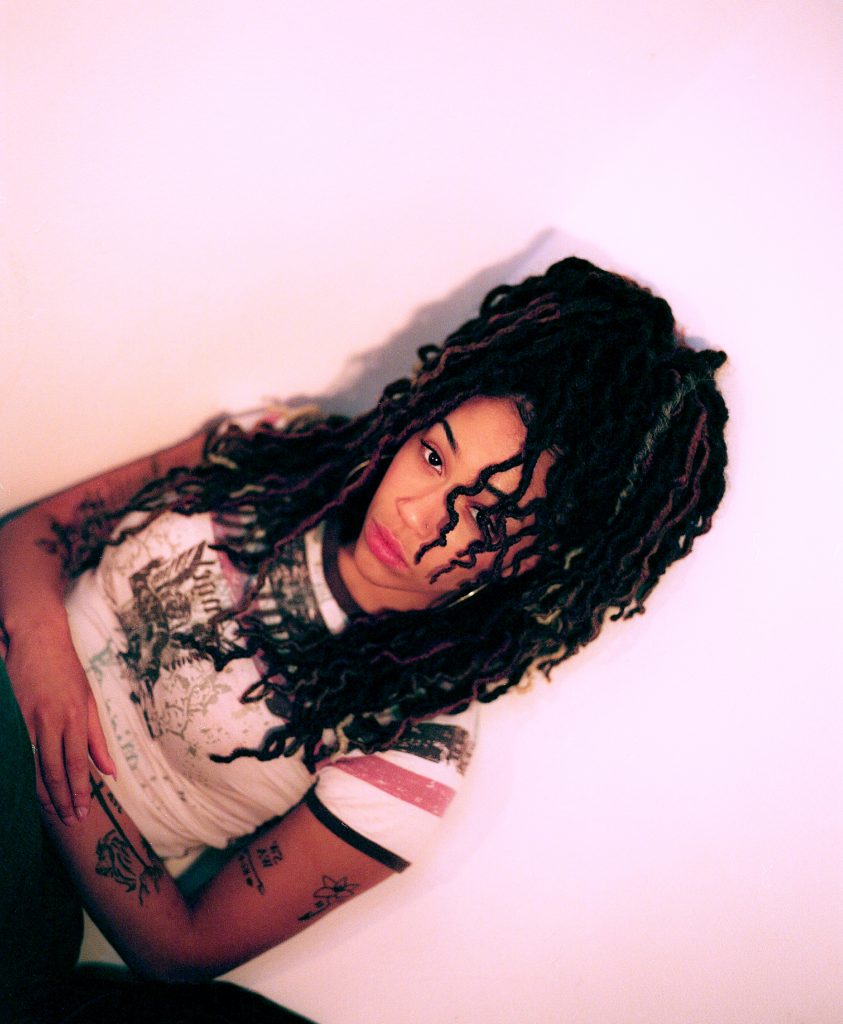
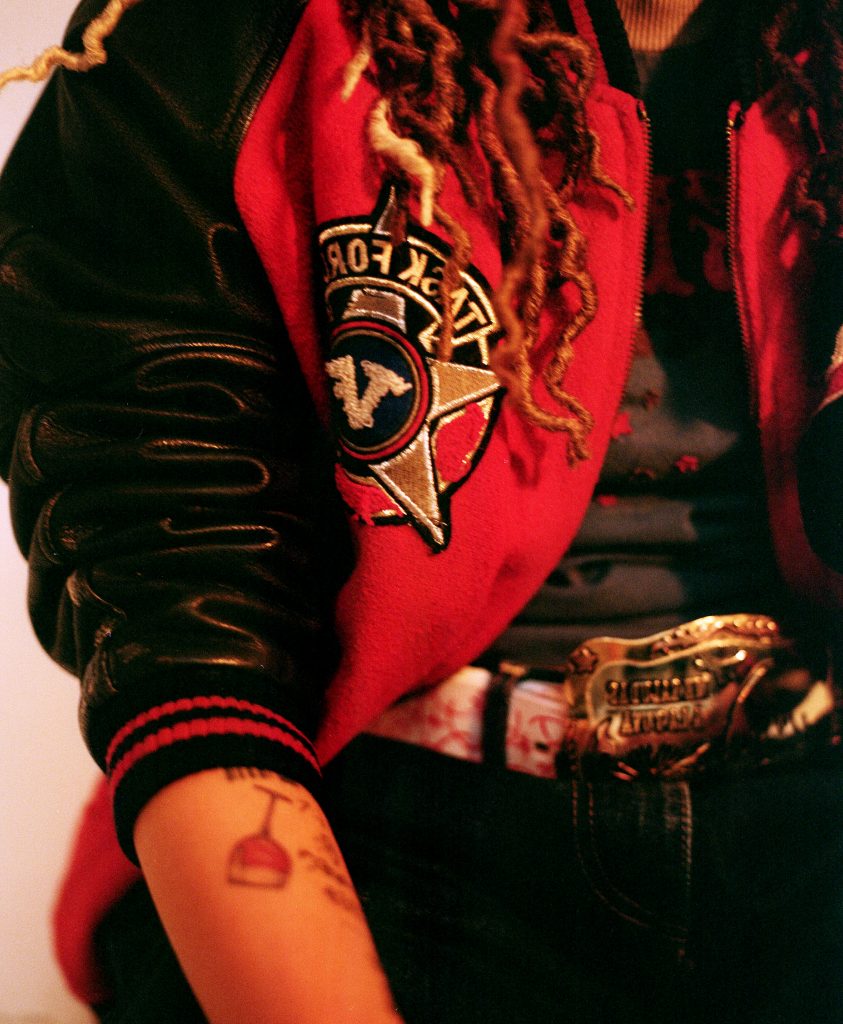
FLB: Do you think about legacy at all? And if so, what would you say you want your legacy to be?
Deyah: I do and I don’t. When I started studying music, I wanted to be this little self-sacrificial, master/martyr of music. That was sort of my aim: dying for the people and laying my soul on the road for them to, you know, do what they wanted with. But that shifted when I realised there’s part being that pioneer for people but also part knowing that there’s things I need to serve myself with too. So I think, legacy is important. I wouldn’t want to be known for anything that I wasn’t. I’d like to be known for authenticity, not being afraid of anyone, any situation, valuing myself and my health above, you know, money or a record deal or whatever it may be. But at the same time, I’m not overly conscious because that’s natural to me, that will just play its part.
Watch Deyah’s short film for her EP, Exit The Dance, below.
Written By
Francesco Loy Bell
Photography
Cal McIntyre
Fashion
Lingani Noah
Makeup
Sogol Razi
